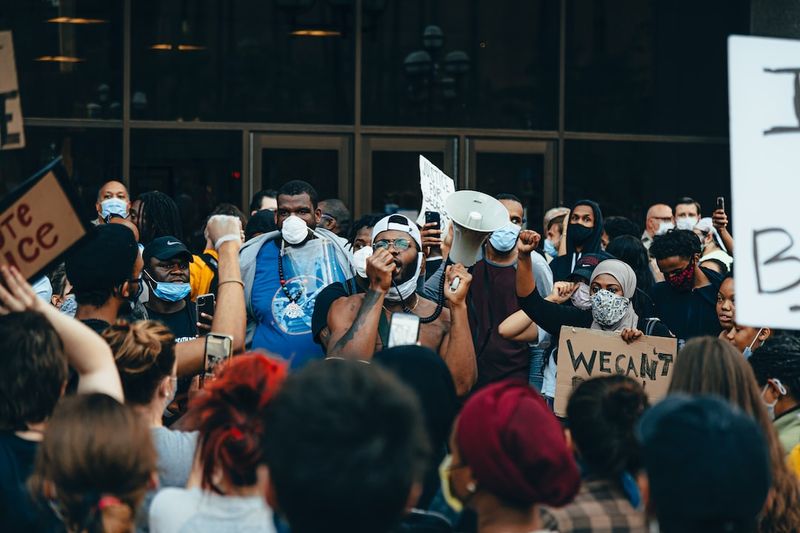Table of Contents
Rwanda: Global Playbook of Abuse to Silence Critics
Introduction
In a recent report published by Human Rights Watch, it has been revealed that Rwandan authorities, along with their proxies, have been employing violence, judicial mechanisms, and intimidation to stifle criticism from Rwandans living overseas. This systemic repression aims not only to silence dissenting voices but also to deter potential critics from emerging. The tactics employed include physical violence, surveillance, misuse of law enforcement, online harassment, and the targeting of relatives of those living abroad. These actions have created an atmosphere of fear and self-censorship among Rwandans abroad, inhibiting their political activism and even their freedom to travel.
The Scope of Repression
According to the report, Human Rights Watch conducted interviews with over 150 individuals worldwide, documenting the tactics employed by the Rwandan authorities against Rwandans living in Australia, Belgium, Canada, France, Kenya, Mozambique, South Africa, Tanzania, Uganda, the United Kingdom, and the United States. These accounts illustrate the relentless nature of the attacks on individuals who oppose the government or simply refuse to support it. The combination of tactics used, and the persistence with which they are employed, effectively wear down the targets.
The Consequences of Speaking Out
Rwandans living abroad who refuse to return to Rwanda and criticize the government from their places of exile challenge the narrative the authorities seek to project. By demonstrating that people choose to leave Rwanda and voice their dissent from abroad, they undermine the image the government has worked hard to cultivate – that of a country where people have no reason to flee. This defiance has triggered a range of measures to isolate and punish these critics, both domestically and internationally.
The Failure of International Recognition
Despite Rwanda‘s growing prominence on the world stage, with its involvement in multilateral institutions and its contributions to peacekeeping efforts, the international community, including the United Nations, has consistently failed to acknowledge the severity of the country’s human rights violations. This lack of recognition is particularly highlighted in the case of Rwanda‘s deployment of troops to Mozambique, where Human Rights Watch has documented instances of harassment, disappearances, and attempted kidnappings targeting Rwandans since May 2021. The failure to hold Rwanda accountable for these violations sends a dangerous message that such abuses can be swept under the rug in the pursuit of political stability.
The Role of Rwandan Proxies
The report also sheds light on the role of Rwandan embassy officials, members of the Rwandan Community Abroad, and other individuals associated with them, who monitor and pressure Rwandans abroad to align with the government’s agenda, return to Rwanda, or refrain from criticizing the government. These efforts to control and manipulate individuals outside of Rwanda demonstrate the comprehensive nature of the repression campaign, extending far beyond the high-profile cases of assassination attempts, disappearances, and online harassment.
Philosophical Discussion: Freedom of Expression and State Power
The repression faced by Rwandans living abroad raises important philosophical questions about the relationship between state power and freedom of expression. The actions of the Rwandan government illustrate the lengths to which authorities will go to quash dissent, even outside their territorial boundaries. This suppression of critical voices not only infringes upon the rights of individuals but also undermines the democratic principles that are fundamental to a just society.
The right to freedom of expression is recognized as a cornerstone of democratic societies, enabling the free exchange of ideas and the peaceful resolution of conflicts. When governments engage in tactics to silence opposition, it stunts the growth of a pluralistic and inclusive public sphere, where diverse perspectives can be heard and debated. The case of Rwanda serves as a reminder that the right to freedom of expression should be protected not just within national borders but also in the international arena.
Editorial and Advice
The international community must take immediate action to hold Rwanda accountable for its human rights violations, both at home and abroad. Despite its economic progress and increased global visibility, the government’s repression of dissent is unacceptable and contrary to the values that the international community claims to uphold.
Rwanda‘s partners, both regional and international, should not be swayed by the country’s development achievements or its contributions to peacekeeping efforts. Instead, they must recognize the urgent need to address the grave violations being committed against Rwandans, both within and outside the country.
International organizations, such as the United Nations, should demonstrate unequivocal support for the rights of individuals to express themselves freely and voice their dissent without fear of reprisal. This support should manifest in diplomatic pressure, public condemnations, and the imposition of targeted sanctions on individuals responsible for human rights abuses.
Countries with strong diplomatic ties to Rwanda, particularly those with Rwandan diaspora communities, have a unique responsibility to protect the rights and safety of their citizens living abroad. They should engage in consistent dialogue with the Rwandan government, expressing their concerns and demanding an end to the repression targeting their citizens.
Rwandans living abroad should be encouraged to continue to exercise their right to freedom of expression, despite the risks they face. They should seek solidarity with international human rights organizations, advocacy groups, and other like-minded individuals who can amplify their voices and provide support and protection.
In conclusion, the international community must not turn a blind eye to the oppression faced by Rwandans living abroad. It is essential to affirm the universal right to freedom of expression and to demand accountability from the Rwandan government for its human rights violations. Only by doing so can we begin to dismantle the culture of fear and repression and pave the way for a more democratic and inclusive society in Rwanda.

<< photo by Josh Hild >>
The image is for illustrative purposes only and does not depict the actual situation.